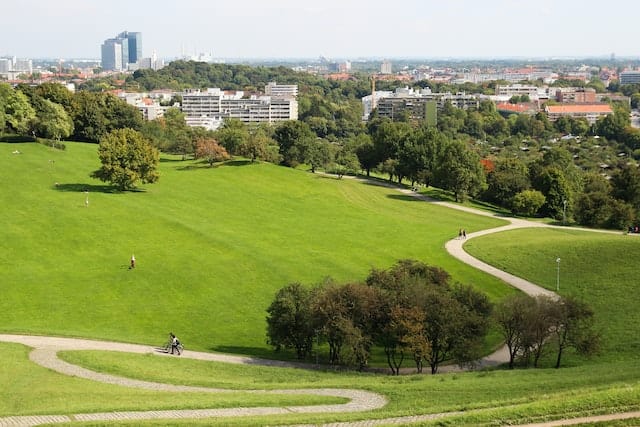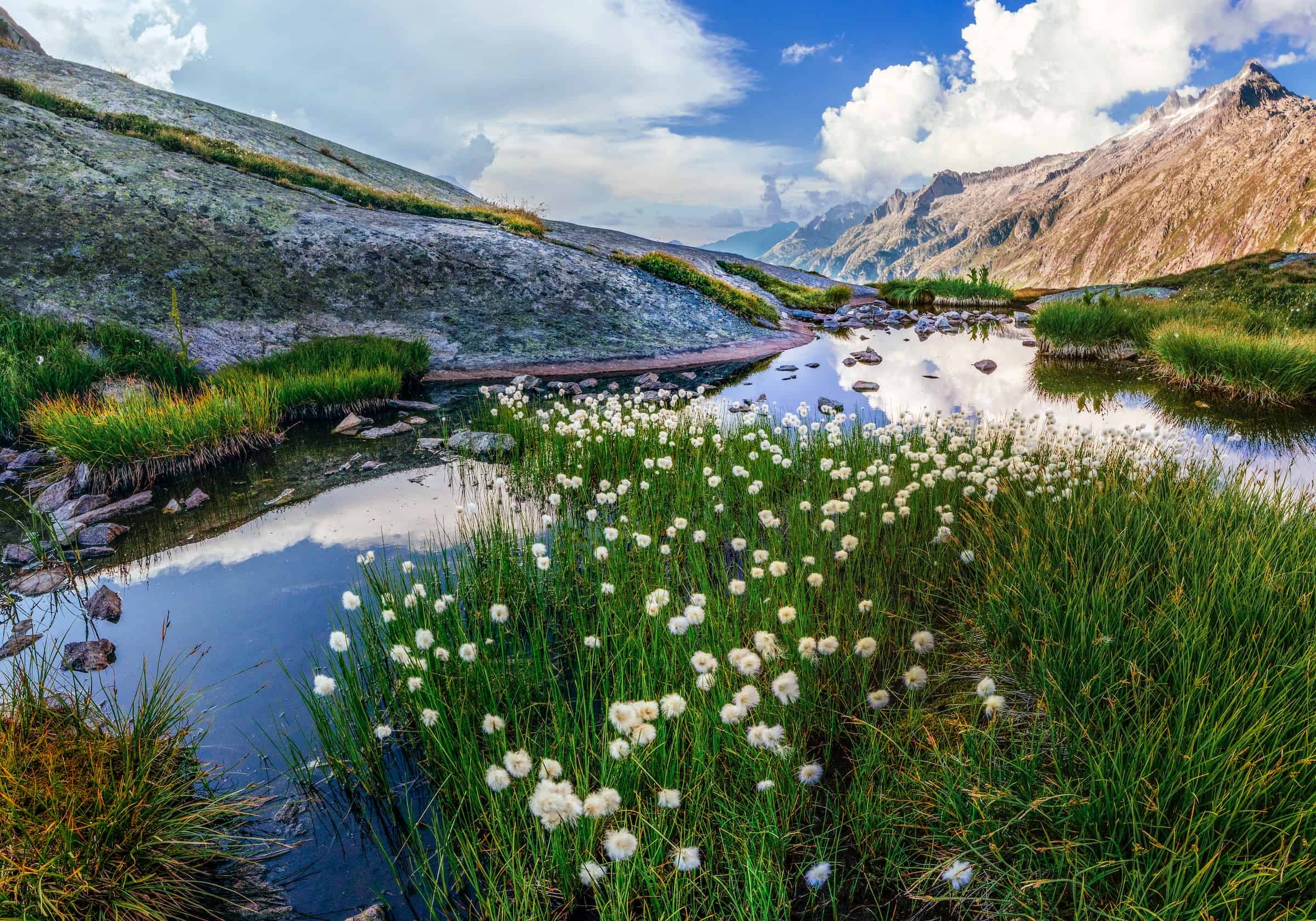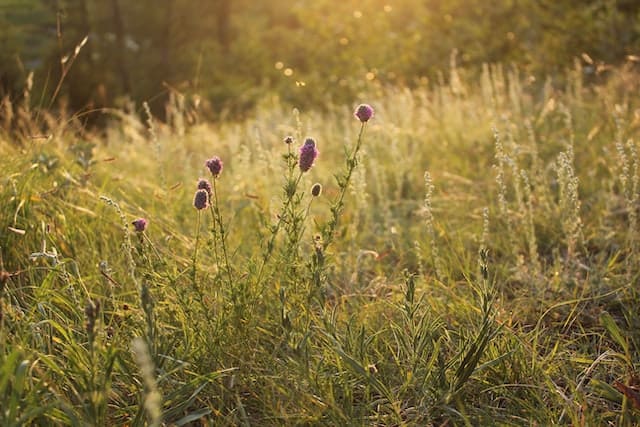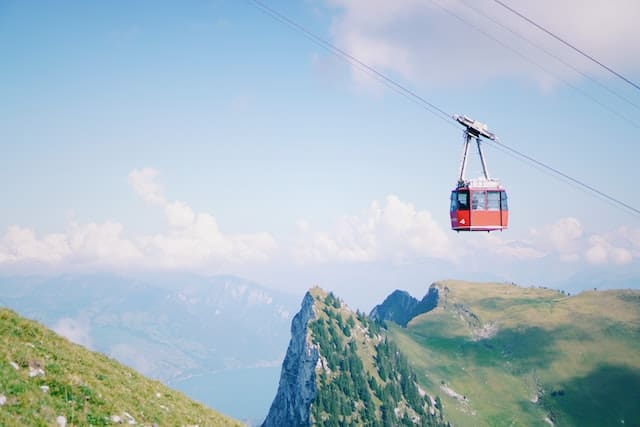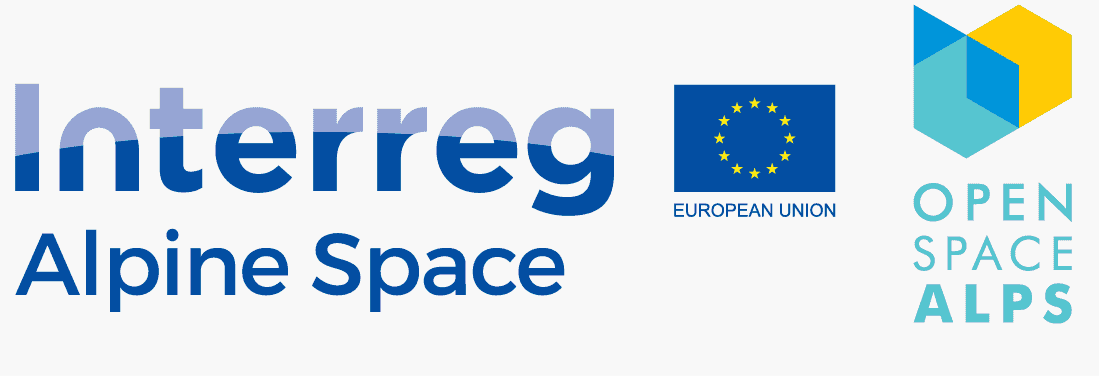
OpenSpaceAlps
Sustainable development of alpine open spaces by enhancing spatial planning governance
Home
Outcomes
Resources
Overview
In the Alps, humans have set foot in every valley and on every peak. Wherever there is a high economic potential, for example for tourism or industry, open spaces are under pressure. OpenSpaceAlps fostered the sustainable development of the region by maintaining open spaces as an integral part of the Alpine green infrastructure. Through a participatory approach, it has developed a multi-level transnational spatial governance, taking into account the integration of ecosystem functions and needs in policies. Spatial and sectoral planners have improved their capacities to balance different land uses.
Factsheet
- 2014 – 2020
- Liveable
- Enhance the protection, the conservation and the ecological connectivity of Alpine Space ecosystems
-
- Group 6: To preserve and valorise natural resources, including water and cultural resources
- Group 7: To develop ecological connectivity in the whole EUSALP territory
- 10/2019
- 06/2022
- 980.740 EUR
- 833.629 EUR
Partners
Salzburg Institute for Regional Planning and Housing (Lead partner)
- Lead partner
- Austria
- Salzburg
- Philipp Vesely
- openspacealps@salzburg.gv.at
Urban Planning Institute of the Republic of Slovenia
- Slovenia
- Zahodna Slovenija
- Ljubljana
University of Würzburg
- Germany
- Unterfranken
- Würzburg
Eurac Research
- Italy
- Provincia Autonoma di Bolzano/Bozen
- Bolzano - Bozen
The Italian Federation of Parks and Nature Reserves – Europarc Italy
- Italy
- Lazio
- Roma
ALPARC – the Network of Alpine Protected Areas
- France
- Rhône-Alpes
- Chambéry
Government of Upper Bavaria
- Germany
- Bavaria
- Munich
- 47.823030813.0391046
- 46.043012814.50522085
- 49.78235639.9667972
- 46.494530211.3472734
- 41.900959312.4933683
- 45.5638749999999965.925742711213934
- 48.138358311.5859318
Outcomes
-
Final publication - guide to project main results
StrategyThis document provides brief introduction of project main results.Translations in English, German, French, Italian and Slovenian languages are available under the Resources tab. -
Alpine Open Spaces Planning Handbook
StrategyThis handbook supports the activities and decision-making of various stakeholders, first and foremost planners in public planning authorities.Based on an analysis of the challenges and framework conditions in the Alpine region, the handbook presents and compares central “principles” of open space planning. Furthermore, integrated planning strategies for different spatial categories are discussed. In the Alpine region, the continuous consumption of open spaces for settlement areas and technical infrastructure and the associated soil sealing can be observed. This leads primarily to the loss of agricultural land. Depending on the extent of development, there is also increased landscape fragmentation, which is associated with the isolation of natural habitats and the restriction of ecological connectivity, as well as other negative consequences. The OpenSpaceAlps project has addressed this issue and, based on cooperative procedures in several pilot regions, has developed approaches and solution strategies for the sustainable safeguarding of open spaces. This handbook supports the activities and decision-making of various stakeholders, first and foremost planners in public planning authorities. Based on an analysis of the challenges and framework conditions in the Alpine region, the handbook presents and compares central “principles” of open space planning. Furthermore, integrated planning strategies for different spatial categories are discussed. Translations in English, German, French, Italian and Slovenian languages are available under the Resources tab. -
Strategic recommendations - short version
ToolThis document is a tool to achieve a better understanding of the concept of open spaces and to implement or improve (spatial) planning processes on all administrative levels.Alpine open spaces provide multiple services that sustain human life and the intrinsic values of (near-) natural areas. Increasing human impacts and landscape fragmentation put these precious spaces under pressure. Spatial planning for open spaces − and especially harmonised transnational planning − is fundamental for safeguarding open space functions and “unbuilt opportunity spaces” in the Alps for future generations. This document is a tool to achieve a better understanding of the concept of open spaces and to implement or improve (spatial) planning processes on all administrative levels. It is divided into two chapters: a.) Policy recommendations have a “strategy focus”, the main target groups are (political and administrative) decision-makers on different levels b.) Implementation recommendations have a “technical focus”, the target groups are primarily experts in the field of spatial planning. An extended version as well as translations in English, German, French, Italian and Slovenian languages are available under the Resources tab. -
Video: OpenSpaceAlps - for generations to come
StrategyThis short video highlights importance of open spaces.Alpine open spaces are under huge pressure. OpenSpaceAlps project aim is to foster sustainable development of Alpine Space by maintaining open spaces as part of alpine Green Infrastructure through an interlinked, multi-level transnational spatial governance considering integration of ecosystems functions and needs into policies. We improve the capacities of spatial and sectoral planners in their role for balancing different land uses. By applying a participatory approach, we strengthen and coordinate regional, national and trans-national spatial planning processes. Thus, we contribute to the programme goals by improving the integration of ecosystem services into the policy system of the Alpine Space. Hence, initiating and moderating a process towards the adoption of new spatial planning approaches in the Alpine Space countries is a must-have. -
Video: OpenSpaceAlps ID card
StrategyThis short video provides some basic information about the OpenSpaceAlps project. -
Interactive web map of open spaces in the Alps
ToolNear natural open spaces in the Alps are a key aspect for biodiversity conservation strategies. However, these spaces are threatened by diverse human activities and the resulting land use conflicts and fragmentation of habitats.The OpenSpaceAlps project addresses this issue from the perspective of spatial planning, with a group of supporting governance and decision-making tools. Alps-wide mapping is a main planning tool for spatial planners and natural conservation experts that makes it possible to identify different levels of spatial development through the calculation of an indicator based on the observed area covered by 11 infrastructure components. The Alps-wide mapping method uses a geographical information system (GIS) spatial analysis to identify spaces presenting a low presence of infrastructure in the Alps. -
OpenSpaceAlps story map
ToolStory map enables interactive way of learning about importance of open spaces in the Alps.
Downloads
-
Translations of Final publication - guide to project main results. Compressed archive with documents in English, German, French, Italian and Slovenian language.Download
-
Extended version of Strategic recommendations provides additional information for in depth understanding of the concept of open spaces.Download
-
Translations of Alpine Open Spaces Planning Handbook. Compressed archive with documents in English, German, French, Italian and Slovenian language.Download
-
Translations of Strategic recommendations. Compressed archive with documents in English (including extended version), German, French, Italian and Slovenian language.Download


